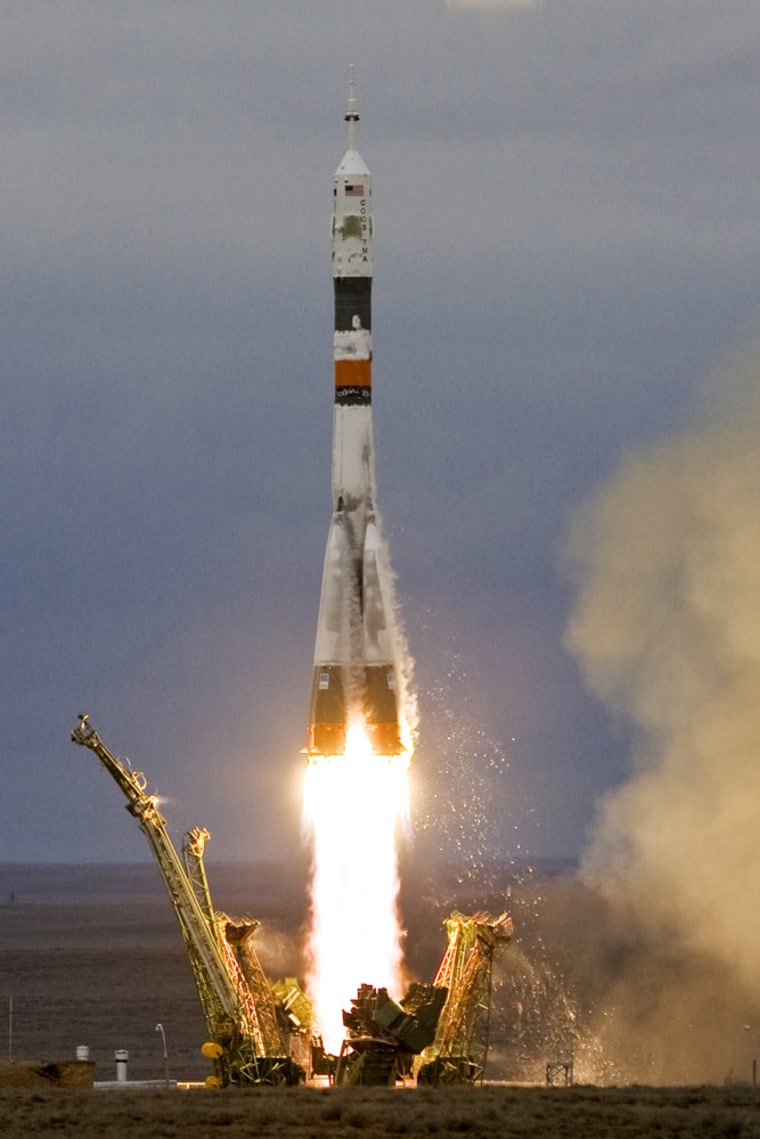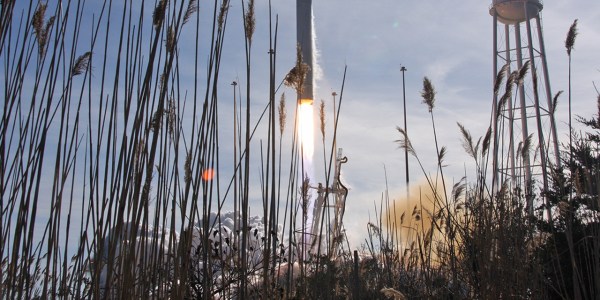The mysterious boom and flash of light seen over parts of Virginia Sunday night were not caused by a meteor, but rather by exploding space junk from the second stage of a Russian Soyuz rocket falling back to Earth, according to a spokesman for the U.S. Naval Observatory.
"I'm pretty convinced that what these folks saw was the second stage of the Soyuz rocket that launched the crew up to the space station," said Geoff Chester of the Naval Observatory in Washington.
Residents of the areas around Norfolk and Virginia Beach, Va., began calling 911 on Sunday night, reporting that they heard a loud boom and saw a streak of light that lit up the sky, according to news accounts.
Chester heard about the incident on Monday morning; the Naval Observatory gets plenty of reports of such fireballs, and Chester investigated whether it could be a meteor or whether there were "any potential decays of space junk that were coming up," he told Space.com.
He checked the listing for debris that were expected to enter the lower atmosphere from their decaying orbits around this time period and found that second stage of the Soyuz rocket that launched last Thursday was slated to hit during a window that started at 8 p.m. ET Sunday.
The Russian-built Soyuz rocket lifted off Thursday from the Baikonur Cosmodrome in Kazakhstan to launch a new crew and American billionaire Charles Simonyi — the world's first two-time space passenger — to the International Space Station. The spacefliers arrived at the space station on Saturday.
Chester ran a satellite tracking program that showed the rocket debris should have come down exactly in the area where the fireball was spotted.
"This is just too much of a coincidence to be coincidence," he said.
Chester said that the U.S. Space Surveillance Network had not yet confirmed that this was the case, but he said he was "99 and four one-hundredths [percent] convinced that this is what it is."
The descriptions of the boom and streak of light reported by local residents were "entirely consistent with re-entering space junk, especially something this big," Chester said.
Slideshow 12 photos
Month in Space: January 2014
Delta airline pilot Bryce Debban reported seeing the streak of light on a flight from Boston to Raleigh-Durham, N.C., when his plane was about 31,000 feet in the air.
"We saw it streak across the sky and then blow up," Debban told Space.com. "It was brighter than the full moon. It lit up the cockpit as if it were daylight."
James Zimbelman of the Smithsonian National Air and Space Museum's Center for Earth and Planetary Sciences said that the explosion being caused by a re-entering rocket was very plausible. It "sounds all too reasonable," he said.
A rocket stage would fragment and explode "just as if it were a meteorite," he said. And the size of the rocket would explain why the explosion was seen over so wide an area.
The Soyuz rockets jettison their second stage after entering orbit in such a way that the stage falls back to Earth within a few days. But "you can control precisely where these things are going to come down," Chester said.
It's possible that some fragments of the rocket made it to Earth's surface, but they would likely have fallen a couple of hundred miles east of Cape Hatteras, N.C., Chester said.
"I don't think anybody will find anything on land," he said.

